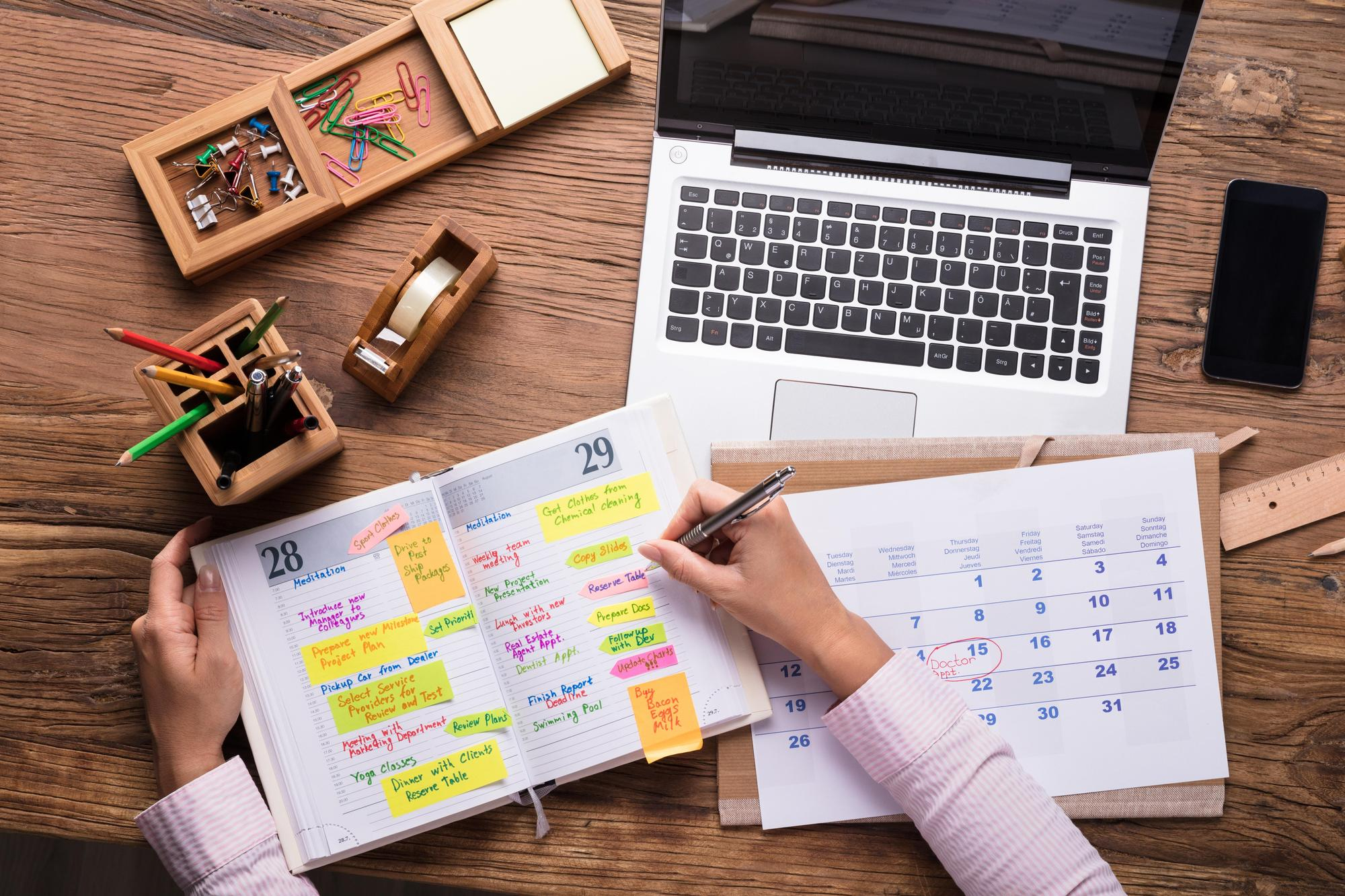
How to Understand and Trust Your Intuition
Have you ever experienced a moment when you felt as though something was not right? Did you shrug it off as illogical nonsense? As part of living in a fear-based culture, we obsess on trying to control our lives.
Leave your fear behind, and trust that illogical nonsense. It is your intuition, your own powerful inner knowledge, speaking to you.
We all have it. It’s whether you decide to tap into it that is up to you.
Let me help you learn how to understand and trust your intuition even better.
What is Intuition?
Intuition is a real psychological process where the brain uses past experiences and cues from your self and environment to make decisions on a subconscious level. It is too quick to register at the conscious level, according to researchers at Leeds University.
Instinct is our natural feeling toward a certain behaviour (as opposed to a learned response), while a gut feeling, or hunch, is a sense appearing in your consciousness (enough to be acted on). However we aren’t fully aware of the essential reasons for its happening.
We need instinct and reason to make the best possible decisions in our lives, though many of us find ourselves uncomfortable, embarrassed, or awkward with the idea of using instinct as a guidance tool. We may mistrust the messages our instincts send, which diminishes our ability to control the power of our own instincts when we need them most.
Ways to Develop, Strengthen, Trust, and Tap into Your Intuition
Here are ways to develop, strengthen, trust, and tap into your intuition.
Listen
Simply put, your intuition can’t speak to you if you don’t listen. When you take notice, good things start happening.
Trust Your Gut
Emotion and intuition have physical presence in our gut, according to research. Our gut is like our second brain, lined with the enteric nervous system, containing 100 million neurons. This is the reason why we are “sick” when making tough decisions or know when we made a bad one.
Feel
The mind chatters (as the saying goes), intuition feels. Your intuition sends you physical cues, like in your belly, goosebumps on your skin, shivers down your spine, your heart racing, your breath quickening. Or it can be more subtle and the best way to describe it is “knowing.” You feel when something is right, it is clear, and will nourish and enrich you.
Let Bad Feelings Go
Any negative emotions you have will cloud your intuition, which is why bad decisions happen when you’re angry or depressed. People make better intuitive decisions when in a good mood, compared to when in a bad mood, according to research.
Learn from Past
Think of a past negative experience, something recent. Before it happened, did you get any feelings that urged you to stay away? Perhaps a gut feeling, foreshadowing dream, or vision. Did you pay attention to it, or talk yourself out of it? Remember exactly how you felt, drawing as many details as possible. The more you tune in to the part of yourself that tried warning you, the more you will put trust in it the next time.
Pay Attention to the People Around You
Perhaps people drain you; those that do add to your inner brain noise, making it more difficult for your intuition to speak to you. Take a moment; your intuition will try and tell you. It is tough, yet you must try to walk away from people who drain you. Keep those close that enrich and empower you. If you cannot walk away from the draining ones, empower yourself by making it your decision to stay.
Be Aware of Your Surroundings
Always keep tabs on your environment around you, the more information you gather, the more your intuitive, subconscious part of your brain has to work with, which means it will more accurately inform your decisions.
Connect with People
Many things inform our opinions and decisions other than speech; tone, volume of speech, body language, gestures all contribute to suggestions we give our interactions with people. We may have a feeling about a person but may not be able to pinpoint what it is. People can be distant, distracted, uninterested, and these things are usually not spoken, but rather “picked up” in different ways. Known as “empathic accuracy,” this is the ability to pick up on thoughts, feelings, and intentions of others. The more we spend with others, the more we can fine tune or empathic accuracy, which adds to our own intuition.
Be silent and Still
Solitude and silence turns down the world’s “chatter,” allowing you to tune in to your intuition. Often too busy to notice, our intuition sends warnings and encouragement. By letting your mind wander you can be open to what may come to you, feelings, thoughts, or words.
Using mindfulness to focus on your own experience in your present moment, your mental clutter clears away making room to connect with your intuition.
Use Your Dreams
Your dreams process information that is left over from your day for your brain. Abundant with valuable data including experiences, memories, learnings, your dreams will work hard for you if you let them. By paying attention to them, they can provide information we may not be able to tap into while we are awake.
Before falling asleep, gear your thoughts with unresolved issues or problems, thinking about possible options or resolutions as you’re falling asleep, then let your brain finish the rest. Write down what you dream about.
Try It
When you can’t always sense from thinking about something whether it is right or not, sometimes you must go ahead and try it. Then you will feel what it is like and will know.
Ask for Understanding
You can ask your intuition questions when you’re unsure. When in meditation, walking alone in nature, or what works for you, and ask your intuitive side, the wise part within you: “Should I be doing this?” Await your answer and be ready and open to receive it.
It can appear as a feeling of Yes or No within yourself, or, as a sway forward (Yes) or backward (No) of your body, like a pendulum. Or maybe you may feel or know what the right answer is for you rather than hear it.
Don’t overanalyze, just await a response. If you receive nothing, wait and see. An answer may suddenly pop in vision when you need it.
Draw a Card
This can be a wisdom card, angel card, tarot card, Goddess card, ideas card, image card, colour card, or what you are drawn to and feels right for you, in your gut.
Though there are many ways of consulting cards, the best way is the simplest. Mix your deck while thinking of a question, doubt, or confusion you wish clarity on. Lay your cards face down, then let your hand move over your cards and take note of where your hand wishes to stop and pick the card from that spot.
Turn over the card and reflect on the image or saying.
How are you reading it? Are you taking it literally, metaphorically, as a story, an image or symbol that relates to what you had asked?
Does it pertain to your current situation, your question, your confusion? Does it feel right or wrong? What ideas or answers does it inspire within you?
Take Note of Synchronicities
Synchronicities, apparently unconnected, amazing, almost extraordinary flukes, carry meaning and provide guidance, as they correspond to our emotional states and inner experiences, according to esoteric wisdom and even Jungian psychology.
An example, the same sequence of numbers, such as 11:11, repeatedly, in many unconnected places.
Your Body Has a Compass
The more you nurture corporeal awareness, the more sensitive you will become, as your intuition speaks through your body. Pay attention when you get an uncomfortable physical feeling when you are trying to decide something.
Are you feeling heavy or light? Feeling ill in your gut? Headache or diarrhea? It could be one of two things, stress responses by false fear, or your intuition.
Escape Daily Routine
When you have a busy schedule, you have a risk of burnout, and it can be hard to be sensitive to quiet voices of intuition. Take a break and get away, slow down. Spend a day in a new place with no plans. Clear your schedule and see if your intuition pops up.
Take a Day in Nature
Away from the technological world, and cognitive mind’s other distractions, the natural world can open the intuition needed when we lived there previously and relied on it to survive the elements, predators, and other dangers.
Repetition
Physical actions calm the cognitive mind and open your intuition. Run. Dance. Chop veggies. Play an instrument. Paint.
Support Your Values
Be comfortable with how you feel when you betray your values, and you learn what intuition does not feel like. You will sense your intuition more clearly when you learn what it feels like to conduct yourself in support of your values.
Intuition Training and Practice
You can study intuition in a formal classroom setting, and online as well.
Two places that teach are the Academy of Intuition Medicine, or the Foundation for Spiritual Development.
Intuition is a powerful tool leading to amazing insights, however it must not be followed blindly. You still need to use both your intuitive and rational parts of your brain to make the best decisions.
If you are practicing with an open mind, you will connect more deeply with your inner wisdom. You will become clearer on what is right or wrong for you, as you have an inner dialogue and compass to rely on.
This will help you grow in self-confidence, well-being, joy, and cope better with life and its ups and downs.
Through hypnotherapy, you can train your subconscious to tap into your intuition using cues and other tools set out by your hypnotherapist. Here at Healing Soul Hypnosis, I can help you tap into your intuition. Don’t hesitate to contact me for questions or to book a session.
Creative Commons Attribution: Permission is granted to repost this article in its entirety with credit to Healing Soul Hypnosis and a clickable link back to this page.
Post a Comment
You must be logged in to post a comment.










